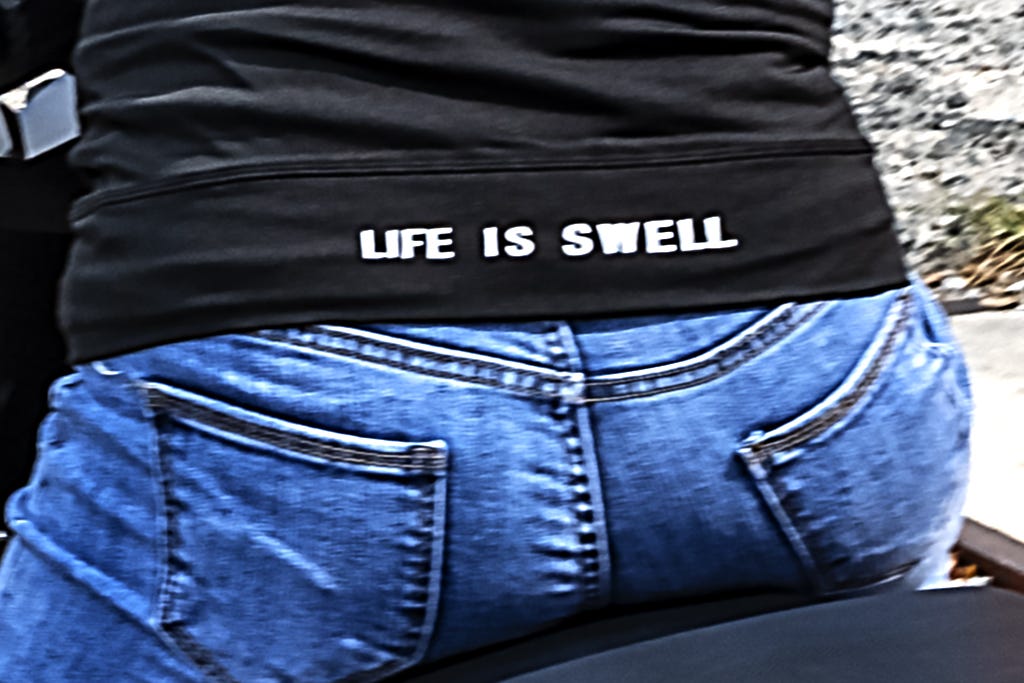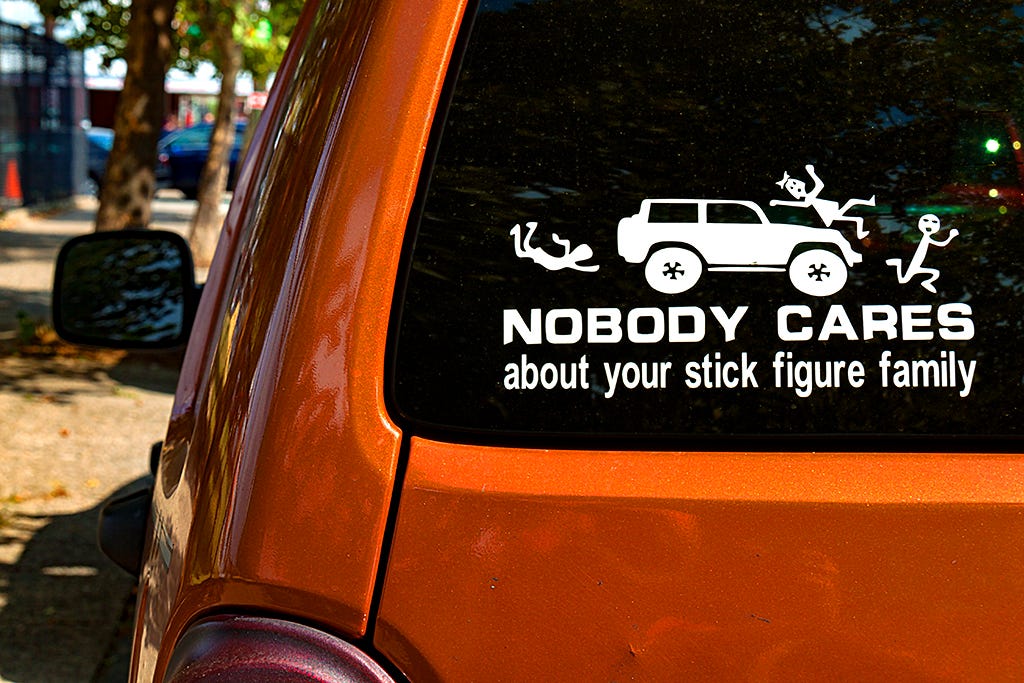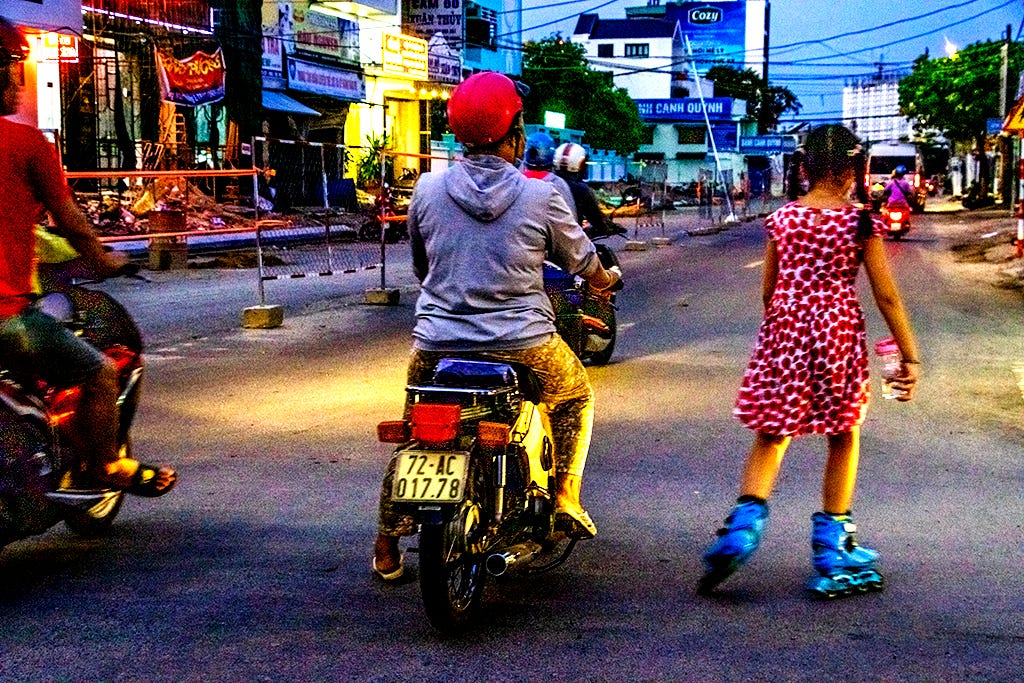Soviets Chasing Old Chickens, Americans Sleeping Under Cars and A Gorging Six-Year-Old
[Vung Tau, 11/23/19]
Once or twice a week, I get a two-egg sandwich from a sixty-year-old guy who has a crudely lettered stand on Ba Cu Street. It’s across the street from a huge Buddhist temple with a garish gate, and not far from Pizza Hut, where you can get a pie with squid, shrimps, (fake) crab sticks and mozzarella, or one with Chinese sausage, paté and mozzarella.
Selling less than 20 banh mi each morning, he makes just over 5 bucks daily. Still, his life is OK, for he has endured much worse. During the 80’s, he was a bicycle cop near Front Beach, where each night dozens of prostitutes (or “chickens” in Vietnamese slang) waited for domestic and international clients.
“The Soviet workers didn’t make much, so they would chase after old women.” he laughs. “One ran into the bush to get away from them.”
“But she wasn’t a chicken…”
“No, she was a mamasan. These Soviet guys loved to drink. They’d drink Nàng Hương [Miss Fragrant] Vodka. They’d eat dogmeat with the Vietnamese hoodlums.”
“So they sort of fit in.”
He nods. “We were paid very poorly. I’d skip breakfast, or just eat rice with fish sauce. For lunch, I’d have rice with boiled water spinach. We didn’t have meats. We’d beg from the fishermen. They’d give us anchovies, but sometimes bigger fish.”
“They gave it to you because you were a cop!”
“Yes,” he smiles, showing gapped, discolored teeth. “I quit after seven or eight years. I was too dissatisfied. My friends who stayed now get 10 million [$431] a month in retirement!”
“Kids today have no idea. Do you tell your kids and grandkids about how your life was?”
“I do.”
“But they don’t really understand. They have it too good.”
“They have it so good.”
He has a cousin in the US. She left in the 80’s with her ARVN husband. He had spent five years in a reeducation camp.
“The US was OK in the 80’s. I’d say it was still OK until 1995 or so. Now, it’s a mess. You know, brother, you wouldn’t be able to run this stand over there. It’d be outlawed.”
“I hear you can’t even put a chair in front of your own door and sit on it!”
“No, it’s not that bad, but they do have too many laws. In Vietnam, I can have a room with twenty hammocks that I rent out, it’s no problem, but in the US, there’s no way you can have twenty guys in a room. It’s not allowed, but why not?! No one is causing a problem. Still, the neighbors would complain.”
“Here, you do what you want.”
“Which makes sense. If a guy can’t afford his own room, let him sleep with ten or twenty other guys. Why not? Since they have nowhere to go, the poorest Americans sleep on sidewalks. Old people, too. Is that a superpower? Many sleep in their own car, but in many places, that, too, is not allowed. Some try to sleep under their car, but they outlaw that too!”
Shaking his head, he chuckles incredulously.
[Philadelphia, 9/10/16]
Until Covid, Vietnam improved, year by year, over three decades, so optimism also increased. During that same period, the US slipped, then nosedived, so where are we? With food and gas prices stratospheric, and record murder and drug overdose rates, even the dumbest doofuses know things are fucked up. Still, there are those who insist it’s just a minor dip. Happy days will be here again!
Among the weirder predictions is Mike Adams’ vision of Chinese troops invading the West Coast by November. They’ll arrive hidden in shipping containers. Swarming inland, they will be met by American nuclear bombs, so if you’re in New Mexico, Nevada and Colorado, etc., expect your beef chow fun to be suddenly lit up supernaturally, as screaming Mandarin rings in your ears. There are worse ways to go.
Just now, a hyphenated American, G. Joseph, told me he agreed “things are really bad back there,” so “living in Europe in a quaint smallish country, things seem better if you ignore the threat of looming compulsory jabs or the possibility that after enough poking, the Russian bear would get really mad and let his nukes loose.” Since the southern hemisphere seemed safest, why didn’t I stay in Namibia, he asked?
Though the southern hemisphere should be safest during World War III, I returned to Vietnam because I was exhausted from drifting from one country to another. Here, I'm in my element, and there are close friends in Vung Tau I can have long conversations with. One recent session at a restaurant lasted 11 hours! The fried beef was excellent, too.
Conversation is a human necessity, of course. It heals or even redeems terrible ordeals. If no one hears you, minor pains fester into permanent abscesses.
Plus, the food options in Vung Tau are much, much better than in Windhoek. When you can eat well, especially for cheap, you simply feel better. If you had just months left, say, wouldn’t you rather spend them as sanely as possible? Eat, talk, laugh!
With that, let’s close with a food joke. You’ll get a glimpse of the Vietnamese mindset, then and now. Though I embellish on a much-told tale, such is story telling.
Under an enormous moon, inside a thatch hut, with bamboos rustling outside, a Nghệ An couple is having dinner with their two boys, aged 9 and 6. Each rustic has a bowl of rice, and there’s a wooden fish on a cutesy plate in the middle of the threadbare reed mat. (They don’t even have a table.) Shoveling rice down their maws, they glance at this fish.
Suddenly, the father whacks the 6-year-old across the head. To the tearful, cowering and trembling boy, he then screams, “Stop staring at that fish nonstop! You’re eating more than your share!”
Nodding, his wife speaks up, “It’s good you’re teaching him some manners. If his greed goes unchecked, he’ll grow up to be a highway bandit!” Turning to the boy, she snarls, “What are you waiting for?! Apologize to your dad!”
Obeying, the boy folds his arms, bows his head and murmurs, “Sorry, dad.”
That night, the boy dreams of an enormous wooden fish he can stare at forever, in a land of obscene, unlimited satiety where visual lust is never punished by sudden whacks on the head. Waking, he realizes his life goal must be to emigrate to Orange County, California.
[Vung Tau, 5/23/22]




Not only is the art of good conversation dying in the US, it is becoming a minefield. I used to enjoy lively debates with friends, and no one left with hard feelings. Now, maybe not so much. (Or maybe those people weren't such good friends as you once thought?)
After we retired 5 or 6 years ago, a former co-worker and I had been in the habit of meeting up for breakfast and conversation every few weeks, until we went on a mostly involuntary hiatus for a couple of years, forced by the closing of so many restaurants and his fear of taking Covid home to his wife.
Recently we were able to start that up again, but now after just two outings, I fear our meetup a few weeks ago may have been our final one. His views on most of the issues of today are pretty mainstream (he was muttering something about the 'barbaric acts of the Russians' in Ukraine on our first meeting a couple of months ago). Since our last meeting he's gone 'radio silent', and I'm beginning to suspect he may have gotten offended by one or another of my other-than-mainstream beliefs.
I am careful in such discussions not to intentionally throw shade on the opinions of my partners or to be mean-spirited. But no one seems to want to do the 'point-counterpoint' thing any more that I used to enjoy so much. Now people simply become offended at some stage when they believe they are losing the argument, or become convinced that you won't 'come around to reason'.
Linh, you seem to be relishing the ability to have long, enjoyable conversations now that you are back on your own turf. That is one of the downsides of living in other countries. Besides the language barrier, the visitor is usually an outsider with a different culture, set of reference points, communication style and world experience. I have found working, if it gives you regular exposure to the locals 1:1, is a great way to understand them because they feel more free to open up and the outsider is less of a threat to gossip about what he hears.
Unfortunately good conversation is pretty much a dead art in America and that is one of the key reasons I moved out. Most conversations are very earnest now with little humor and a high value placed on displaying the awesomeness of the speaker.
Americans traditionally have paid little attention to the rest of the world or politics which means that conversation, especially with the middle class, was very chit chat Unfortunately, since social media, American think if they have seen a meme, they understand an issue. This is particularly bad with democrats who feel that the sign of a good, smart person is the determination to repeat the narrative du jour of the Jewish media. Mother Gaia forbid that you disagree with the narrative because that will mean you are a stupid person who probably watches Fox news (the propaganda arm of the fake opposition as opposed to the propaganda arms of the other side of the uniparty.)
Underlying all this is the traditional American lack of curiosity about anything that does not involve people's daily lives, celebrities, sports, and money.
If you were to go back to America and attend a dinner party, your recapping all your traveling would create an uncomfortable silence until someone asked the others if they have been to that new restaurant that just opened.